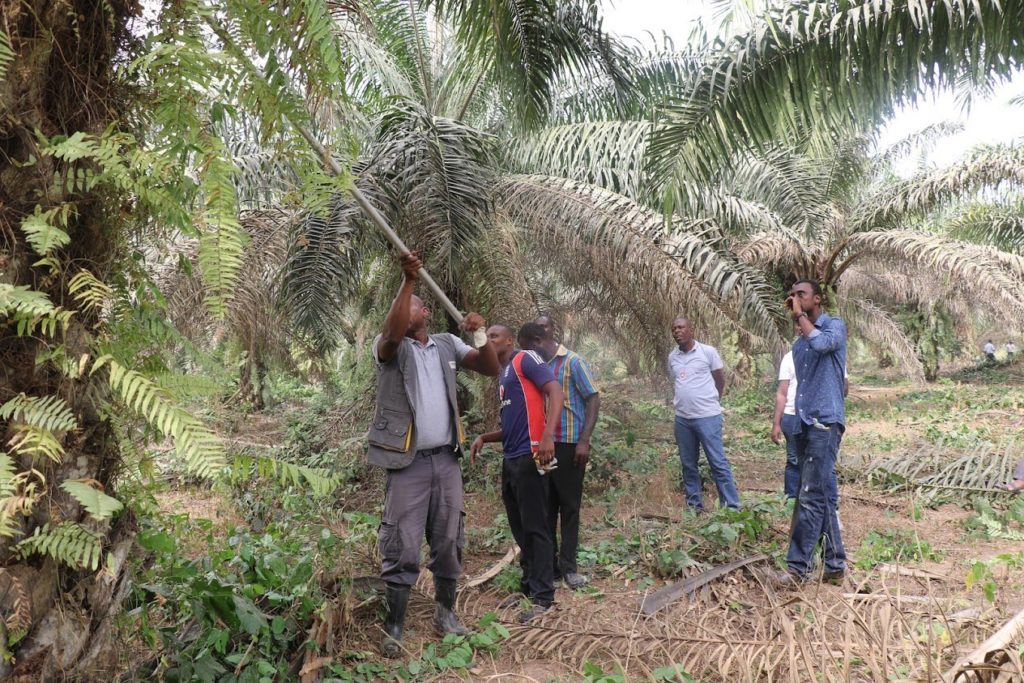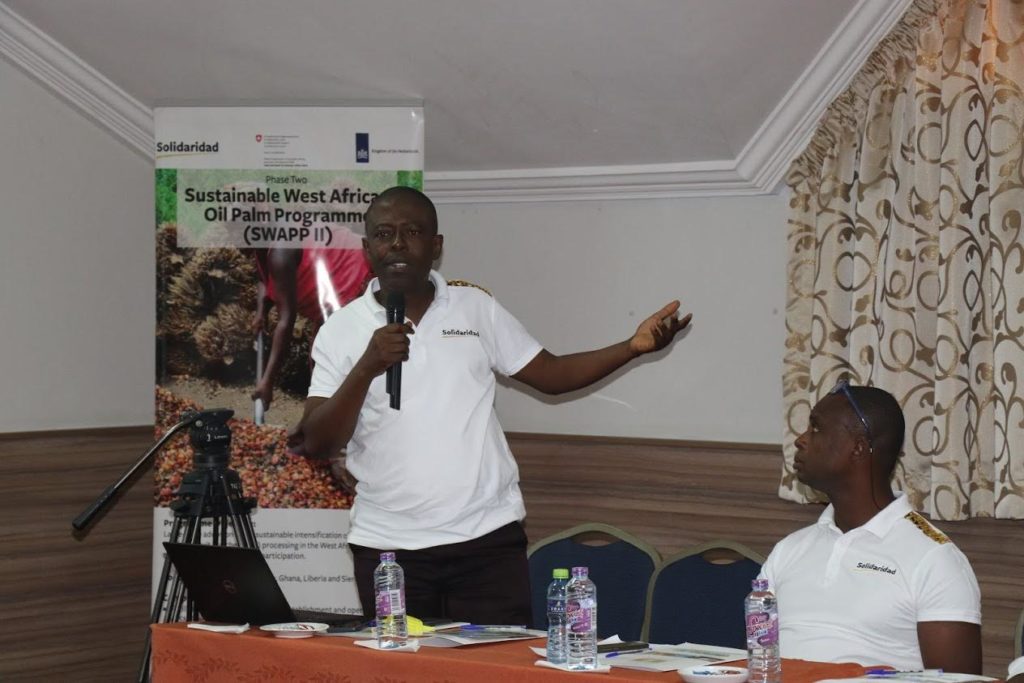
Unlocking opportunities
The curriculum, targeted at the youth, is aimed at equipping learners with the requisite skill set for the oil palm industry, and training entrepreneurs to set up businesses in the oil palm value chain. This will boost employment opportunities in the sector and enhance Ghana’s potential of becoming a global player in palm oil production.
The competency-based training, which is under the Agricultural Technical and Vocational Education Training initiative of the Government of Ghana, has been accredited by Council for Technical and Vocational Education and Training, the national regulator.
Training will be offered in six modules:
-
Nursery establishment
-
Land preparation and plantation establishment
-
Harvesting
-
Farm management
-
Plant protection and chemical application
-
Processing and quality assurance
Each module would be delivered over a four-week period with 30% of instruction time with an accredited institution and 70% at a workplace or enterprise.
Engaging learners
Fifteen learning centres, including four schools and 11 enterprises, were assisted to receive accreditation from the Council for Technical and Vocational Education and Training to run the programme.
The training is expected to be rolled out this year, with an initial enrolment of 500 youth learners sponsored by the Sustainable West Africa Oil Palm Programme with funding from the Embassy of the Kingdom of the Netherlands in Ghana and the Swiss State Secretariat for Economic Affairs. Learners will be selected from communities in the oil palm growing belt of Ghana participating in Solidaridad’s oil palm programme, workers from enterprises hosting learners, and tertiary graduates from the participating schools.

Skills and sustainability
The Programme Manager for Sustainable West Africa Oil Palm Programme, Nicholas Issaka Gbana, said the competency-based training forms part of the skills for employment component of the oil palm programme which is being implemented in Ghana, Liberia, Sierra Leone and Cote d’Ivoire.
Our focus is to provide adequate technical and vocational training to the youth to equip them with the skills for employment within the sector. With support from the funding partners, the oil palm programme would cover the full cost of training for the 500 learners,” -Nicholas Issaka
The second phase of the Sustainable West Africa Oil Palm Programme seeks to contribute to the transformation of the oil palm sector in West Africa, increase incomes of smallholder farmers and processors, create jobs and generate economic growth. This is part of Solidaridad’s global agenda of building sustainable production for palm oil and other commodities.
>Read more about our work in Palm Oil.
